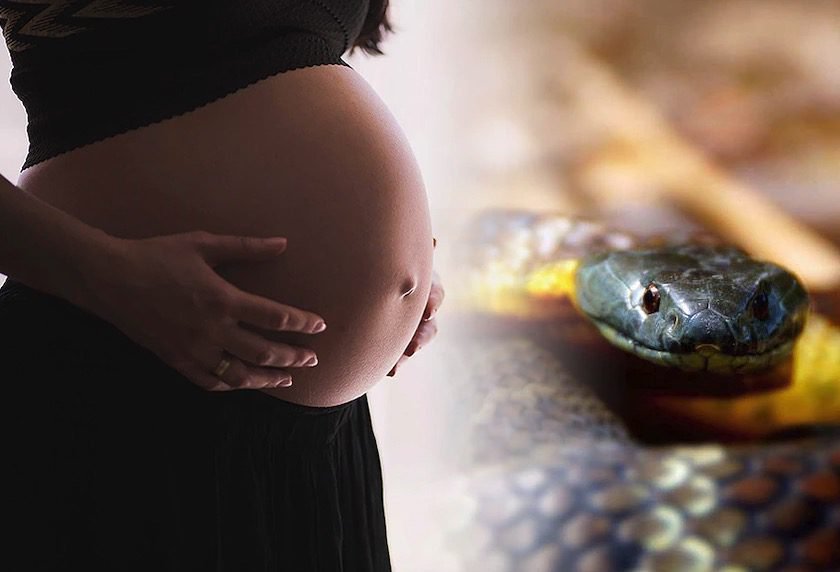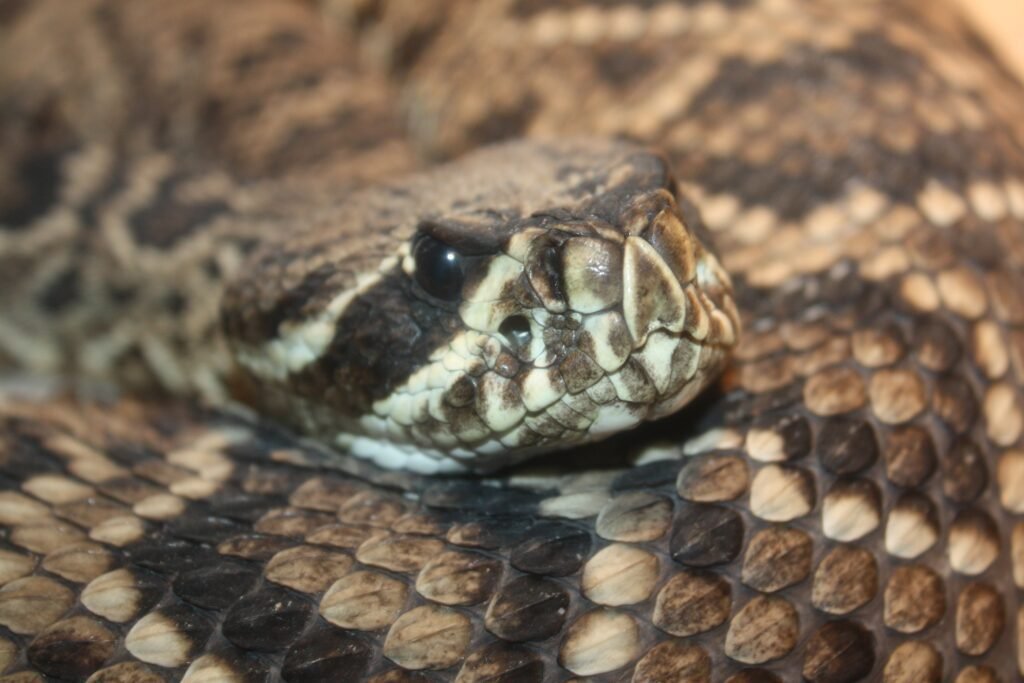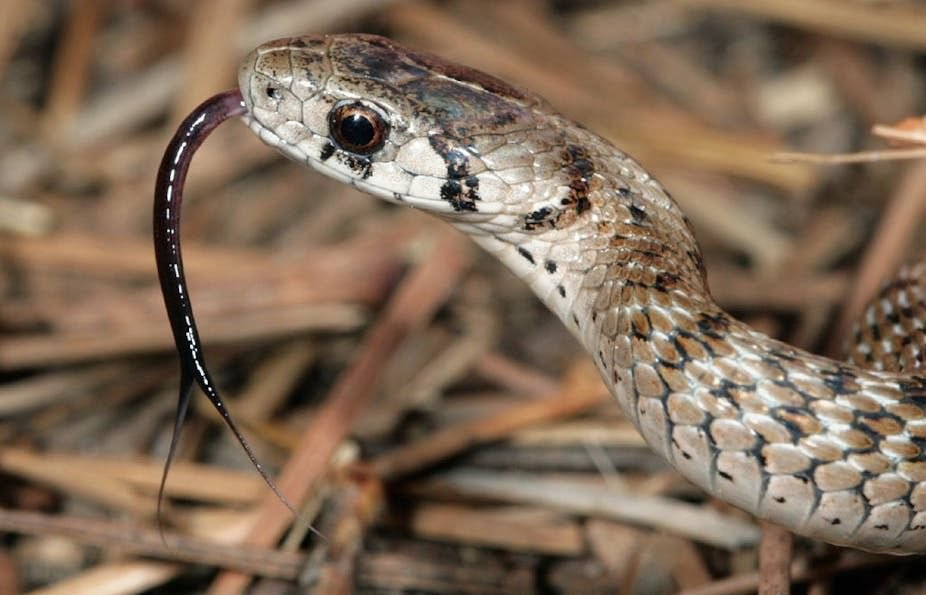


Can Snakes Grow Their Tails Back? (Answers & Facts)
February 28, 2024


Are King Snakes Good Pets for Beginners?
February 29, 2024The idea that snakes might be able to sense pregnancy is a fascinating one. Snakes have remarkable senses, allowing them to pick up on environmental changes that most other creatures would miss. This has led to curiosity about whether these reptiles can detect pregnancy in humans or animals.
Understanding this could deepen our knowledge of snake behavior and inform how pregnant individuals interact with these creatures.
Exploring this topic sheds light on the mysterious world of snakes and the potential connections between animal instincts and human conditions.
Can snakes sense pregnancy?
There is no scientific evidence to suggest that snakes can specifically sense pregnancy. Snakes rely on their keen senses, such as detecting heat and vibrations, to navigate and understand their environment, not to identify pregnancy.
Snakes possess advanced sensory organs that allow them to detect minute changes in their surroundings, which helps them find prey and avoid predators.
These sensory capabilities include sensing heat through infrared detection and picking up on vibrations, which could theoretically allow them to notice changes in a pregnant individual’s body temperature or heartbeat.
However, these abilities do not equate to an understanding or recognizing pregnancy as a condition. Furthermore, any anecdotal observations of snakes behaving differently around pregnant individuals are likely coincidental or can be attributed to changes in the individual’s behavior rather than the snake sensing pregnancy.


Snake with Pregnant Women
Also, Read: Can Snakes Grow Their Tails Back? (Answers & Facts)
The sensory ability of a snake
Snakes have incredible sensory abilities that help them uniquely interact with their environment. One of their primary senses is smell, which they use by flicking their tongues in the air to collect scent particles.
These particles are then analyzed by a unique organ in their mouth called the Jacobson’s organ, giving them detailed information about their surroundings, potential prey, or predators.
In addition to their keen sense of smell, many snake species can detect heat through special organs called pit organs located between their eyes and nostrils. This allows them to “see” the body heat of warm-blooded animals, even in complete darkness, making it easier for them to hunt.
They are also sensitive to vibrations, feeling the movements of other animals through the ground. This blend of sensory abilities makes snakes highly attuned to environmental changes, aiding their survival.
How do snakes detect environmental changes?
Snakes perceive environmental changes through their highly developed sensory systems, finely tuned to detect even the slightest alterations. These acute senses include:
- Smell and Taste: By flicking their tongue, snakes capture scent particles from the air and ground, analyzing them with Jacobson’s organ to identify potential food, mates, or threats.
- Heat Detection: Some snakes, like pit vipers, have pit organs that allow them to detect infrared radiation (heat) from warm-blooded animals, helping them to “visualize” prey or predators even in total darkness.
- Vibration Sensitivity: Snakes are highly sensitive to vibrations through the ground, enabling them to sense the presence and movement of other animals nearby.
- Visual Changes: Although not all snakes have strong visual acuity, some species can see well and may notice significant changes in light and movement around them.
These capabilities might theoretically allow snakes to notice changes associated with pregnancy in humans or other animals, such as increased body heat or hormonal changes that could affect scent.


Eastern Diamondback Rattlesnake
Do snakes behave differently around pregnant women?
There is a lack of scientific research specifically addressing whether snakes behave differently around pregnant individuals. Most discussions around this topic are based on anecdotal evidence, which can vary widely and lacks the rigorous testing required to establish a scientific basis for such behavior changes.
However, here’s a brief exploration of the topic based on the information available:
- Anecdotal Observations: Some pet owners have reported changes in their snake behavior when interacting with pregnant individuals, such as showing interest or acting more cautiously. However, these observations are subjective and can be influenced by various factors unrelated to the pregnancy.
- Lack of Scientific Studies: No well-documented scientific studies have directly investigated how snakes respond to pregnant individuals. Without controlled research, it’s challenging to determine whether any observed behavior changes are directly related to pregnancy or are coincidental.
How do other animals react to pregnant women?
Animals exhibit a wide range of reactions to pregnant individuals, with behaviors that can range from increased protectiveness to complete indifference. Here’s a general overview:
- Changes in Behavior: Some animals, especially pets like dogs and cats, may become more protective or affectionate towards pregnant owners, possibly due to changes in the owner’s behavior, scent, or hormones.
- Increased Protectiveness: Animals within the same species, especially those in social groups, may show increased protectiveness towards pregnant members, providing them with food or shielding them from harm.
- Indifference: Many animals, particularly those not closely bonded with humans or those in the wild, may show no noticeable change in behavior towards pregnant individuals, treating them as they would any other.
- Sensitivity to Hormonal Changes: Evidence suggests that animals can detect hormonal changes in pregnant individuals, which might sometimes explain altered behavior. However, this is more anecdotal than scientifically proven.
What precautions should a pregnant woman take around her pet snake?
Pregnant individuals should exercise caution when interacting with snakes, prioritizing safety for themselves and the snake. Here are some essential precautions to consider:
- Avoid Handling: If possible, avoid handling snakes during pregnancy, as their unpredictable behavior could lead to stress or injury.
- Maintain Distance: Keep a safe distance from wild snakes. If you encounter a snake outdoors, give it space and avoid disturbing it.
- Hygiene: After any contact with snakes or their habitats, wash hands thoroughly to prevent the risk of transmitting salmonella, which snakes can carry and is particularly risky during pregnancy.
- Supervision: When interaction is necessary, ensure it’s under the control of a professional, or someone experienced with snakes to minimize any risks.
- Habitat Safety: Ensure pet snakes are securely housed in escape-proof enclosures to avoid unexpected encounters.
- Educate Yourself: Learn about the behavior of any snakes you might be around, including signs of distress or aggression, to better understand and react appropriately to their actions.


Snake Navigating Environment
FAQs – Can Snakes Detect Pregnancy?
Can other pets sense pregnancy?
Yes, pets like dogs and cats may sense pregnancy due to their sensitivity to changes in their owner’s behavior, scent, and hormones. They might become more protective or affectionate, reflecting their ability to catch subtle environmental changes.
Are there health benefits to interacting with snakes during pregnancy?
While direct health benefits are not well-documented, interacting with pets, including snakes, can reduce stress and promote well-being if the interaction is safe and stress-free for both the individual and the animal.
Can a snake’s behavior change due to its owner’s pregnancy?
A snake’s behavior might change in response to environmental alterations or the owner’s behavior, not the pregnancy itself. Changes in the owner’s routine, handling, or emotional state can affect the snake indirectly.
Should pregnant individuals avoid all animals during pregnancy?
Not necessarily. Pregnant individuals can safely interact with animals with appropriate precautions and hygiene practices. It’s important to be aware of specific risks associated with certain animals and to consult healthcare providers for personalized advice.
Conclusion
Current evidence does not support the idea that snakes can specifically sense pregnancy. Their reactions to pregnant individuals are more likely based on general environmental and behavioral changes. The limitations of our current knowledge highlight a need for further research to explore the relationship between animal senses and human physiological changes, including pregnancy.



